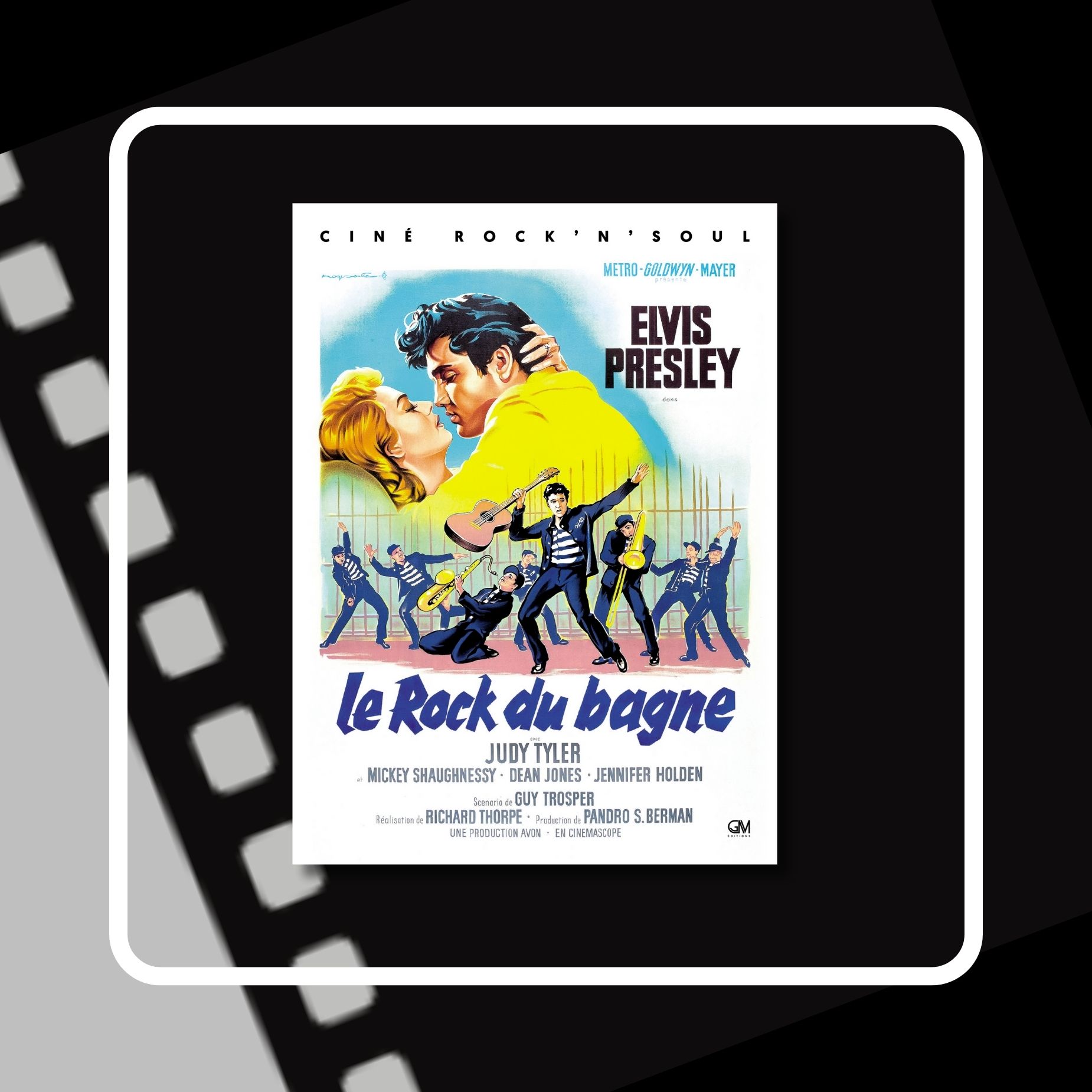
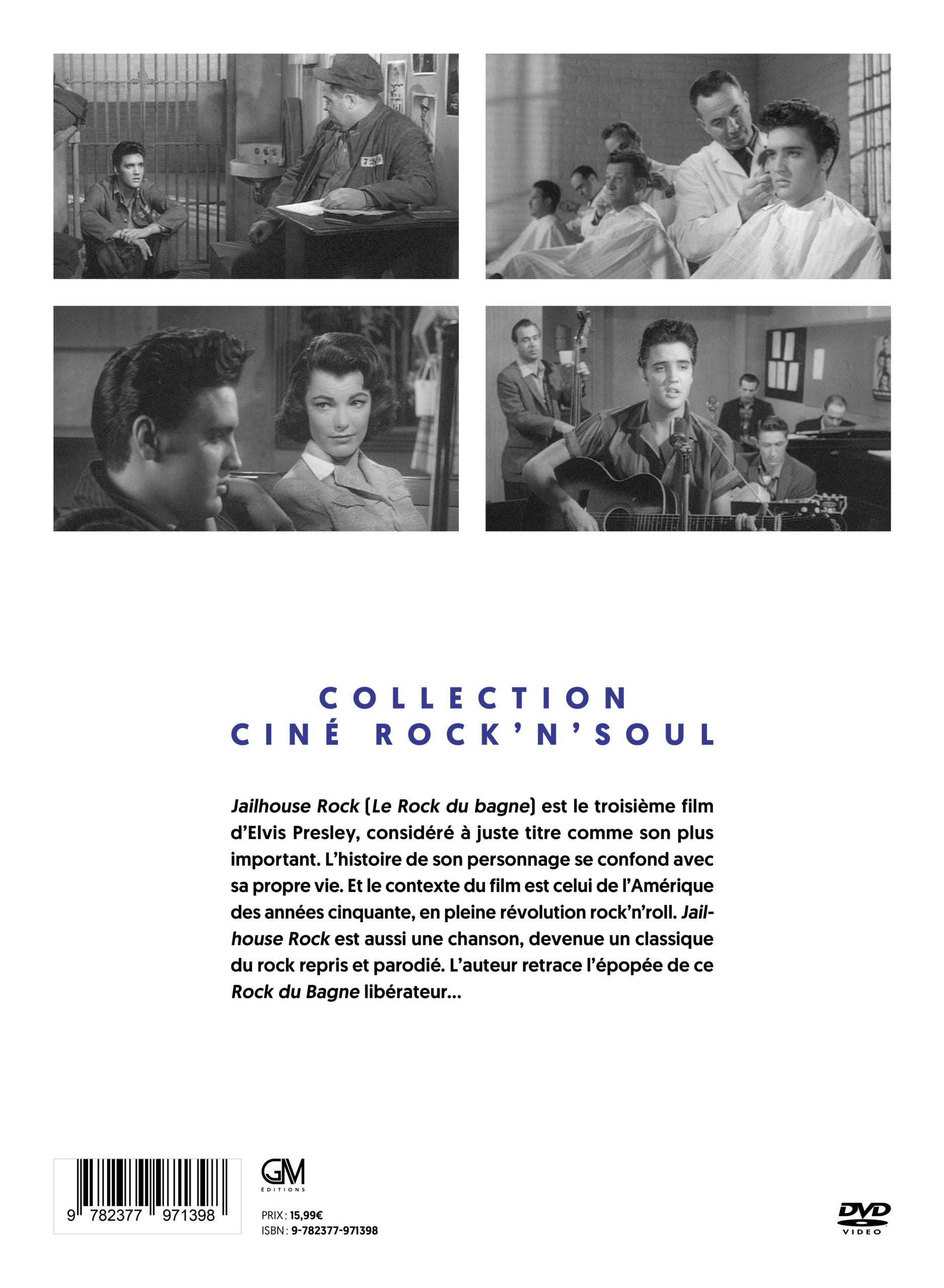
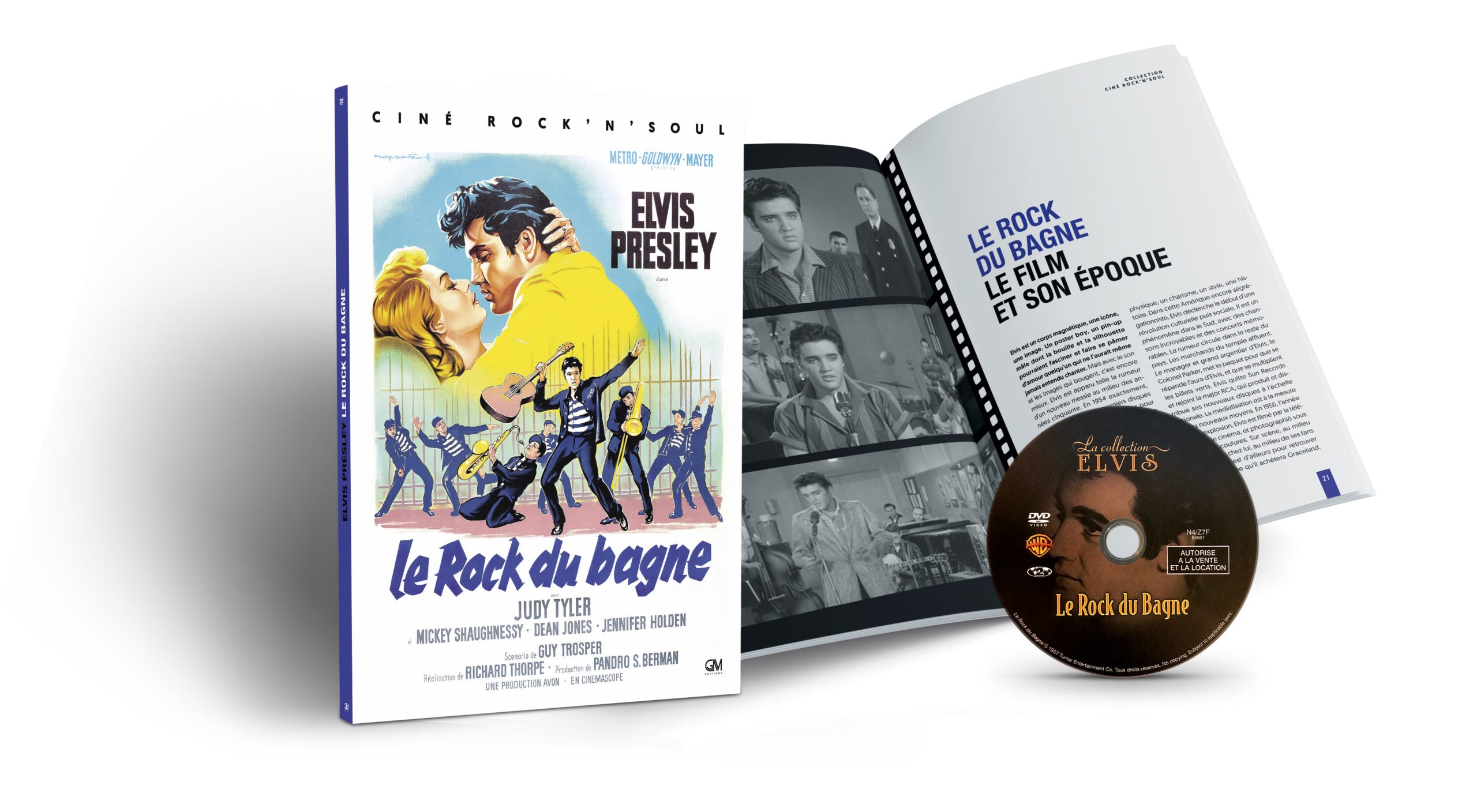
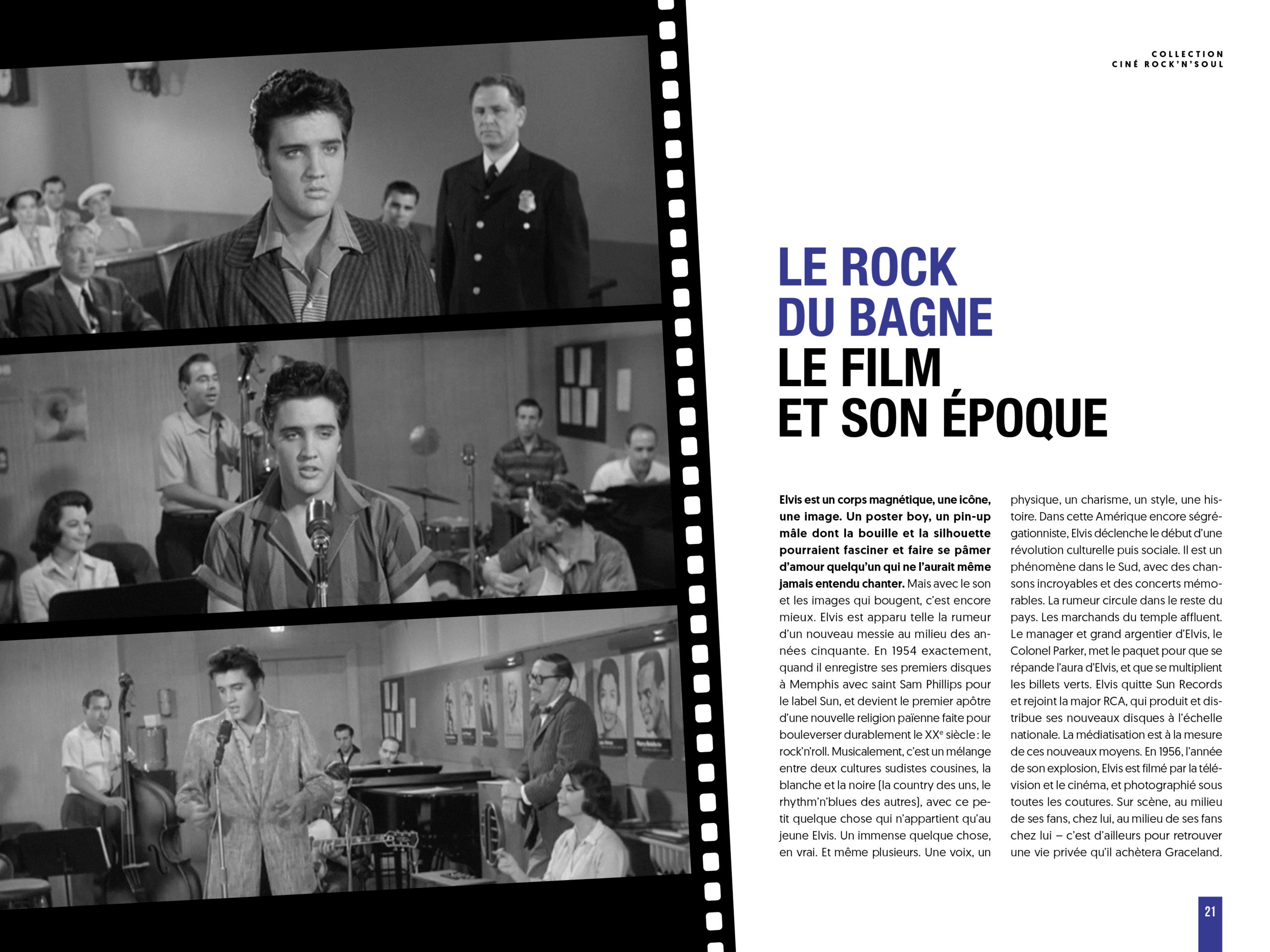
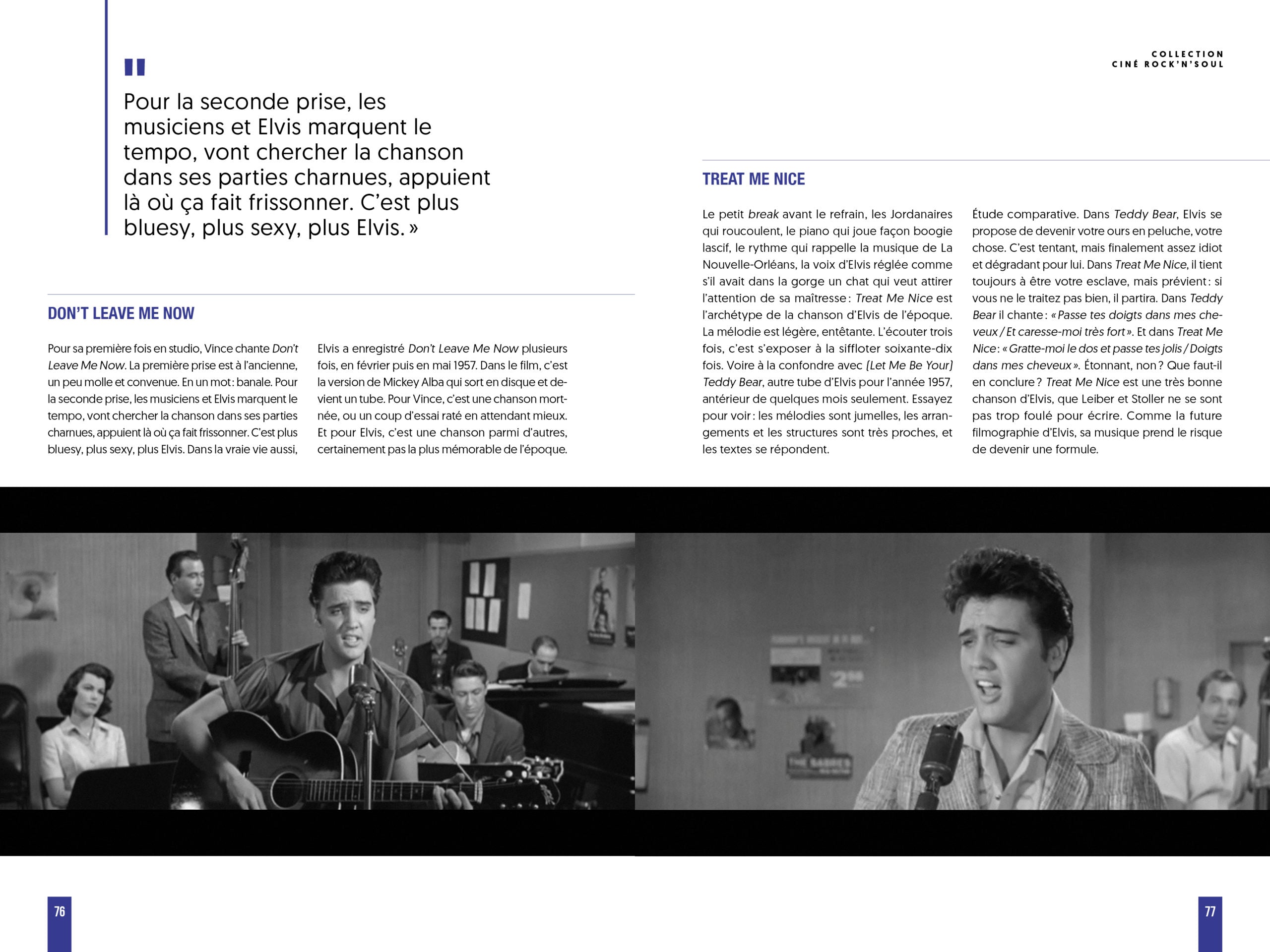
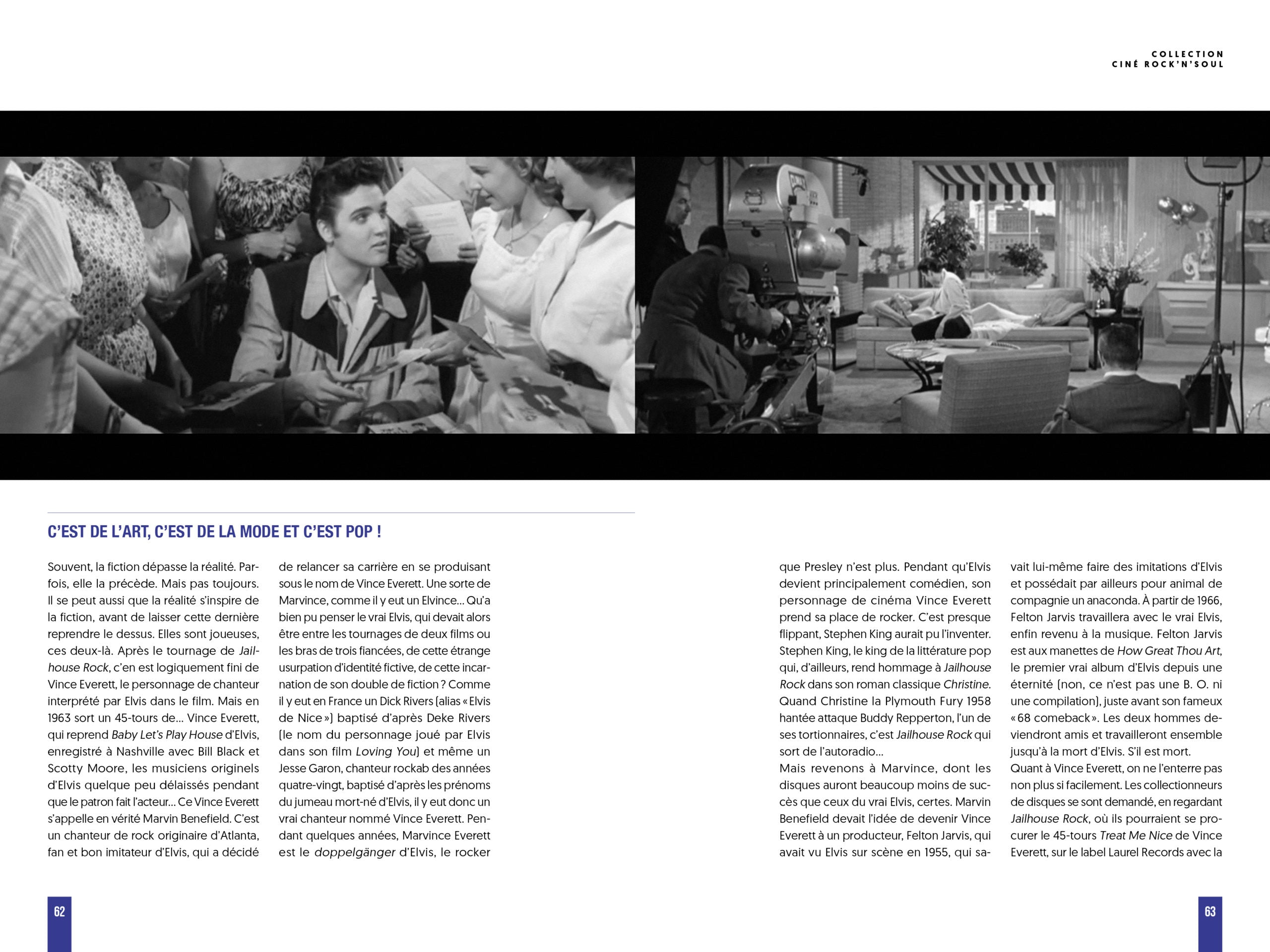
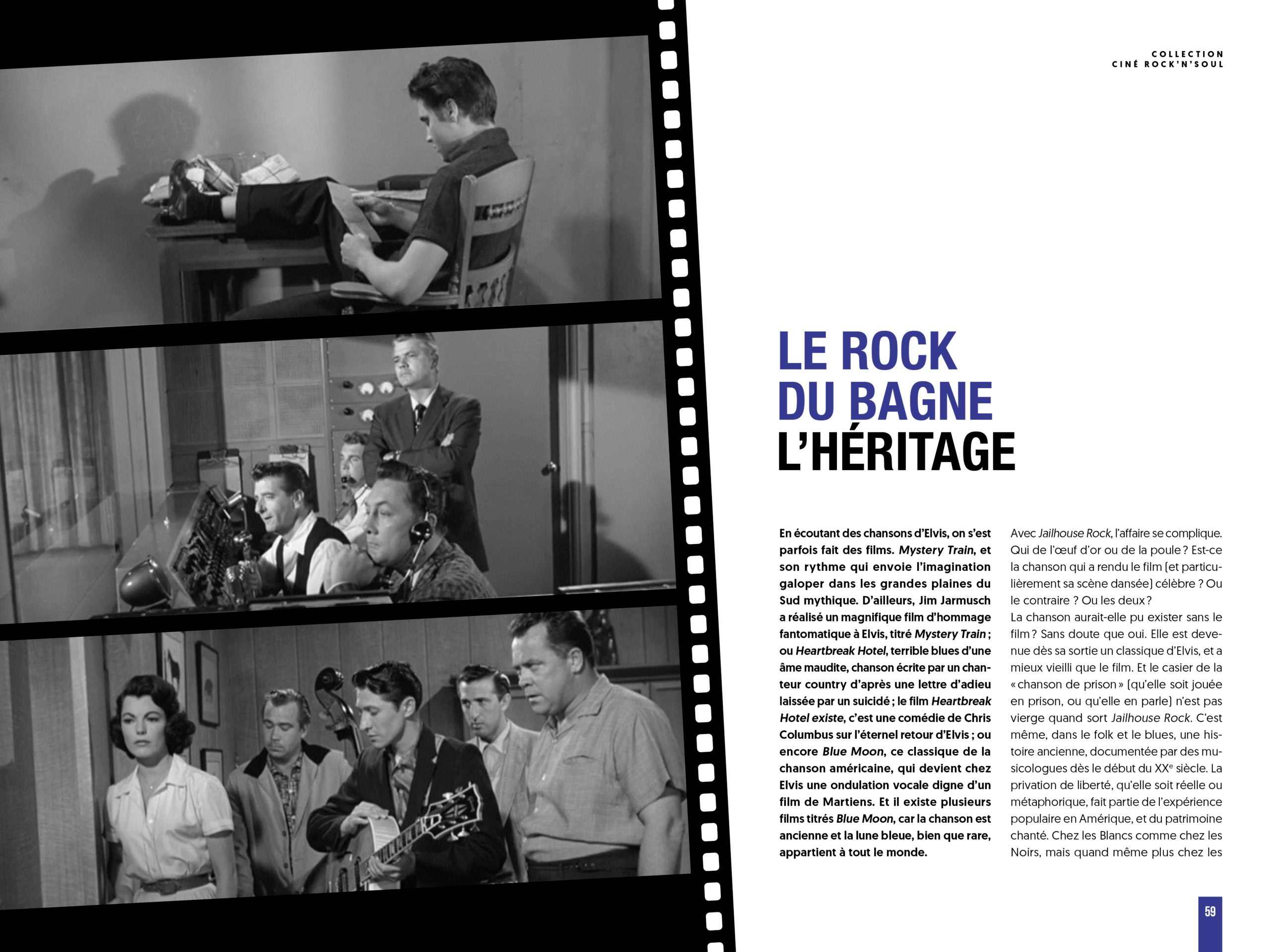
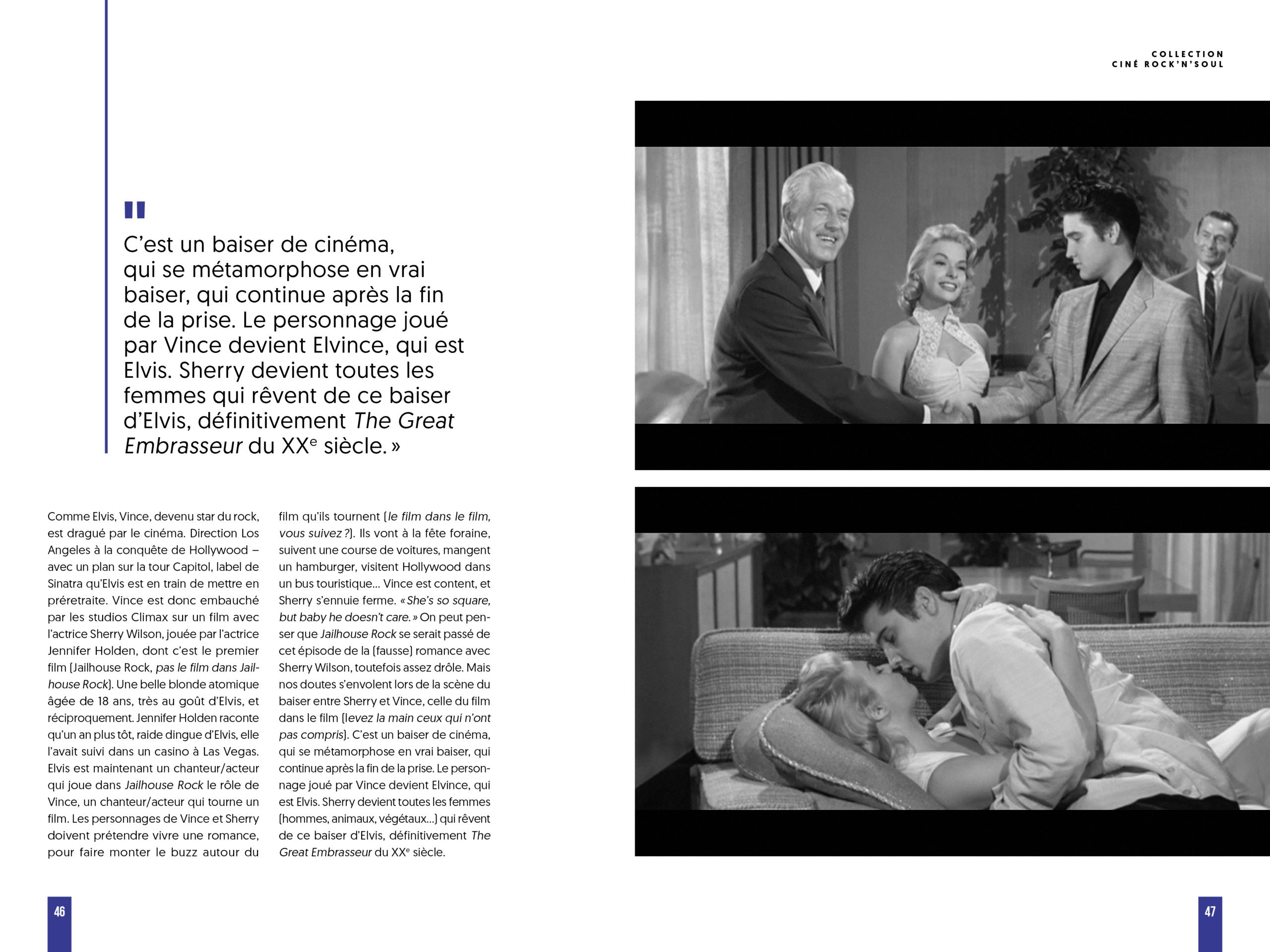
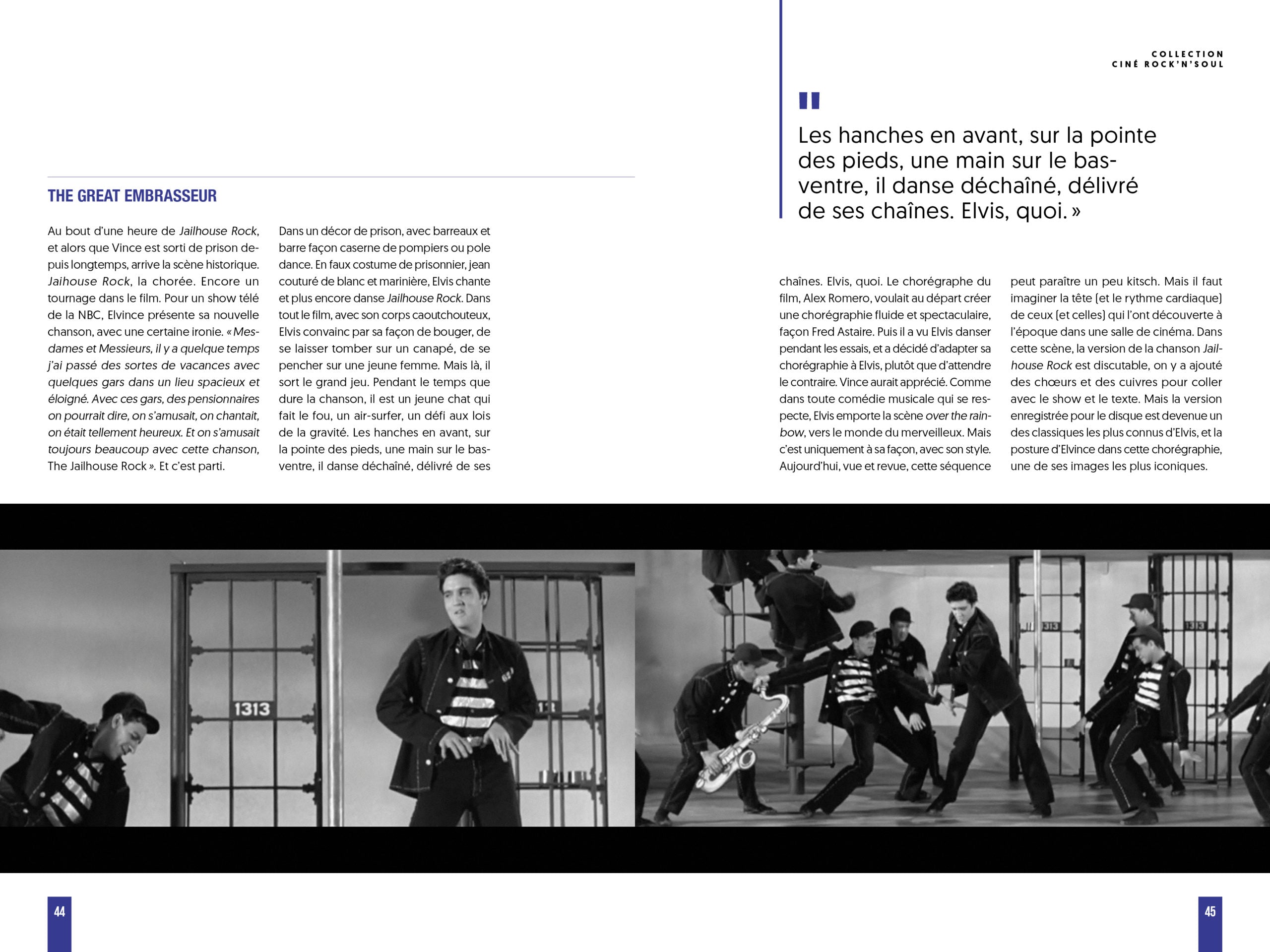
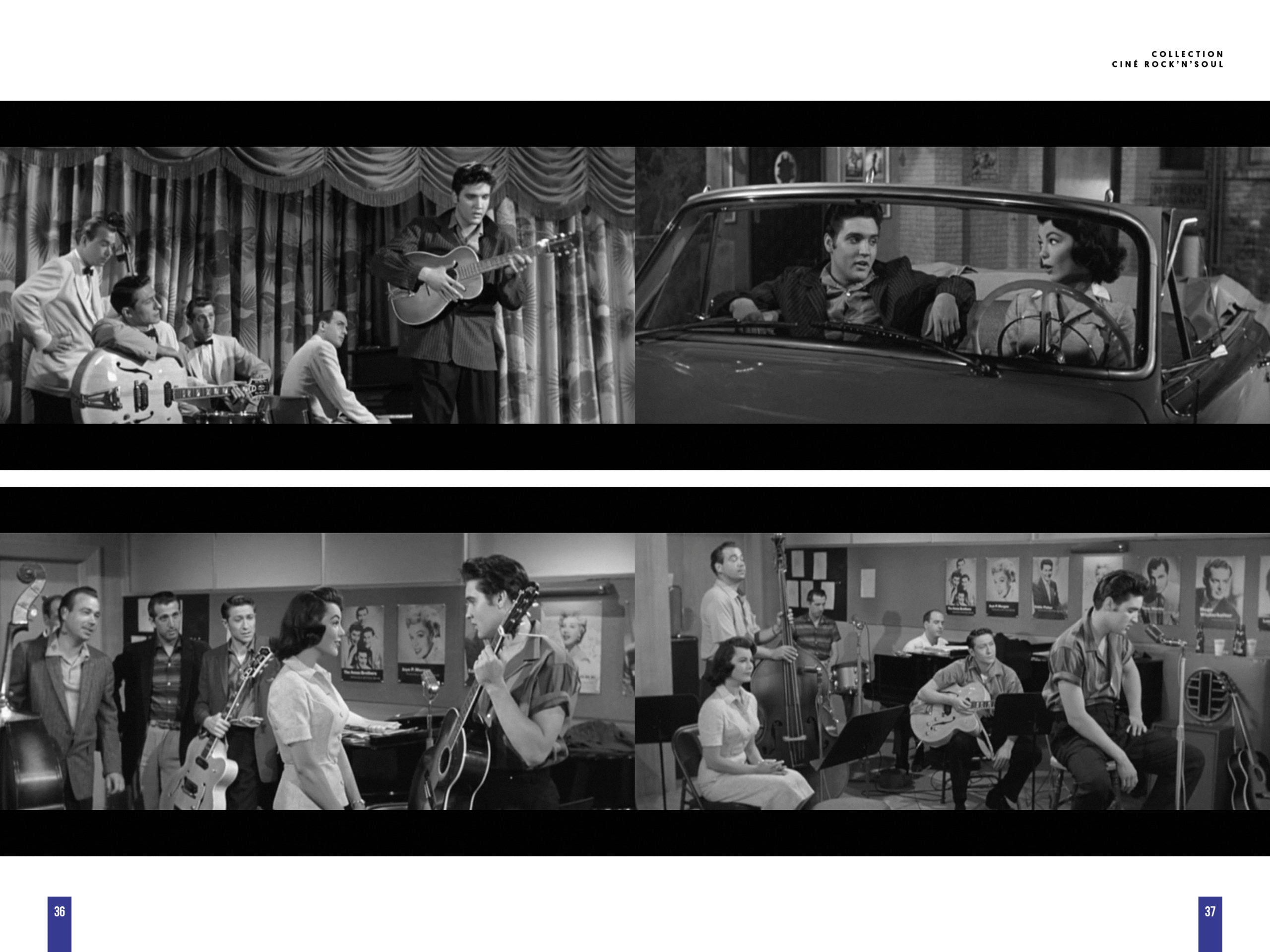
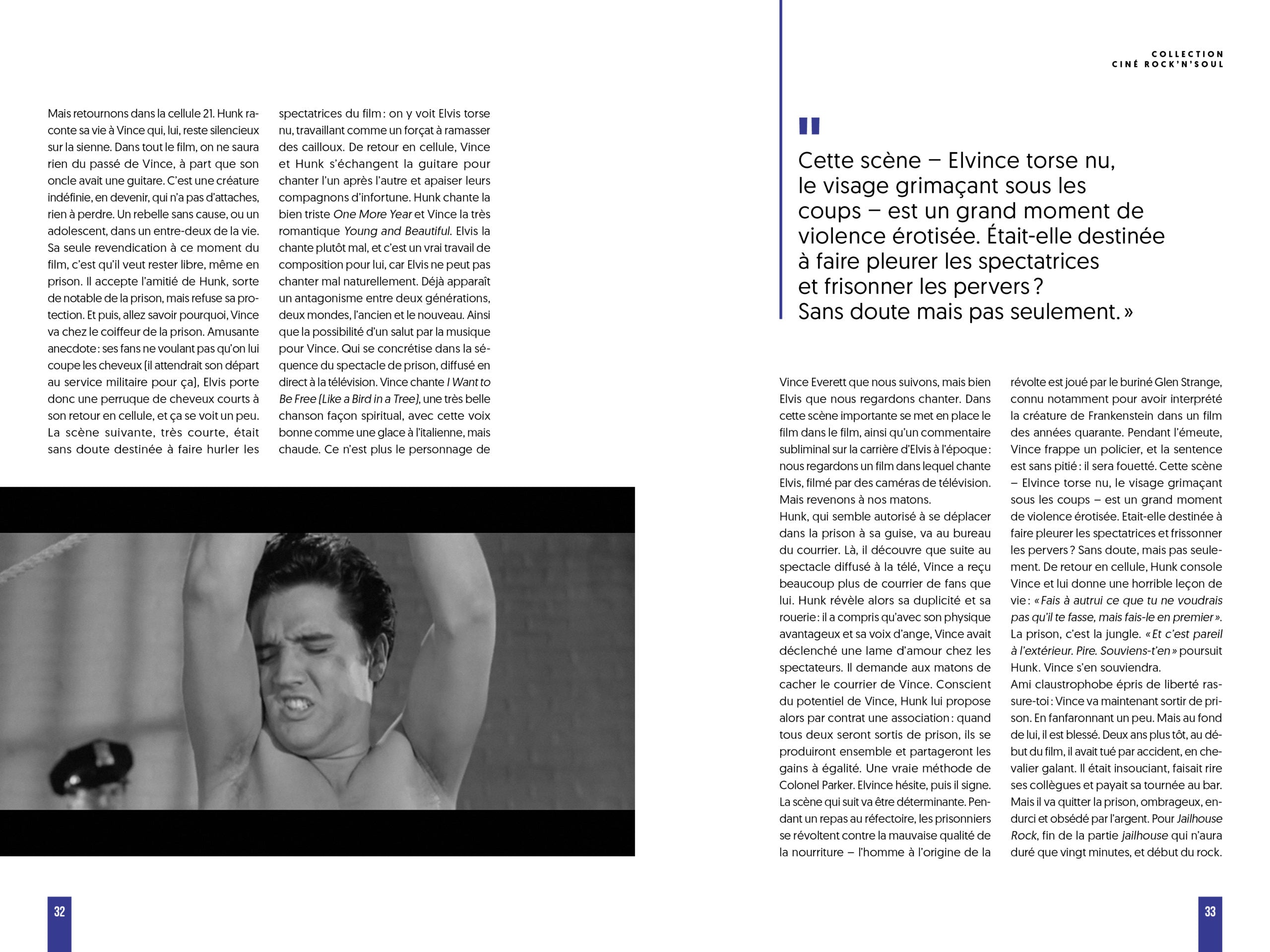
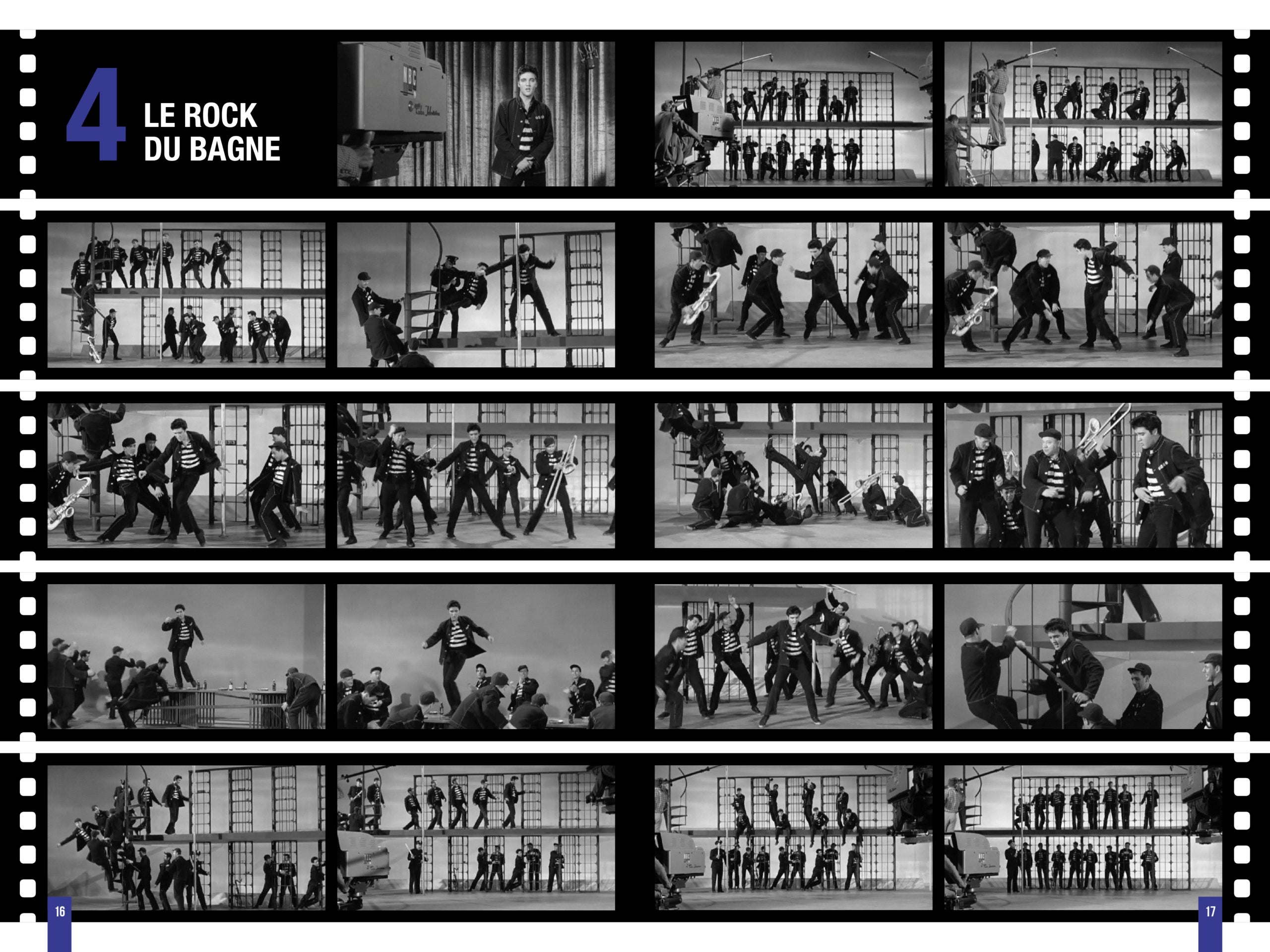
Elvis Presley, Prison Rock
Description
AN 80-PAGE BOOK WITH OVER 150 UNPUBLISHED PHOTOS AND THE ORIGINAL FILM LE ROCK DU BAGNE (1957)
Jailhouse Rock is Elvis Presley 's third film, rightly considered his most important. The story of his character is intertwined with his own life. And the context of the film is that of America in the fifties, in the midst of the rock'n'roll revolution. Jailhouse Rock is also a song, which has become a classic of rock covered and parodied. The author traces the epic of this liberating Rock du Bagne...
Elvis
A Southern Pentecostal, shaped by his religion, a religion of both paroxysm and contention. Shaped also by the complexes of this community of defeated Southerners who, even in the prosperity of the post-war period, feel they do not belong to the "good" America.
From Heartbreak Hotel to his departure for military service: the improbable victory of a redneck
In 1956, Elvis Presley represented 5% of the 45s sold in the United States. His take-off was of a historic magnitude and suddenness. Individually, Elvis was point by point the opposite of the adolescent ideal. Stocky, overweight, long hair, dark eyes, a slightly limp gait... Sociologically, he belonged to the least respected America. That of the Bible Belt, of the southern accent, of "backward" morals... Of course, he imposed a new way of singing, but he also entered into the framework of Northern culture. With in particular the birth of the myth of an Elvis "inspired by blacks" and the implicit denial of his own white trash culture (as they would say later).
Another element underestimated by posterity: the coherence of all his work. From the songs that make the hips move, to his religious recordings. This mixture of Southern culture and idiosyncratic genius marks a major rupture for American (and then world) culture, which is confirmed in Hollywood. From then on, the singularity of a Southerner is integrated into American normality – and even exemplarity.
From military service to his return to the stage
The most incomprehensible period if we think of Elvis as an icon of rock'n'roll disorder. But the exploitation of his character (a million dollars per film, minimum rate) is completely consistent with the need, for Elvis, to confront the old demons of his lineage. In his docility, even his passivity in the face of Colonel Parker, there is the fatalism of his father, who resolves to depend on welfare, to accept the non-segregated neighborhood, to fail meticulously in all his enterprises in order to succeed alone...
Elvis started out failing auditions, being sent back to his underclass destiny, before seizing an exceptional opportunity. He makes the alignment of this talent and his era bear fruit.
The Las Vegas years – up to 168 concerts in a year.
Elvis as Elvis' double. A fat character caricaturing himself in willingly vulgar and emphatic shows. At the same time, he retains a rock harshness, sometimes hardening the sound in a prophetic way. At the same time, he is a typical maverick of a culture favorable to characters who break away. His passion for karate, his political commitments...
The paradox of his addictions. The plunge into medication (which foreshadows the opioid crisis in the Belt from afar) while he is wary of alcohol. A complex relationship with sexuality and seduction…
At his death, Elvis is both downhill and glorious, undeniable and already buried. The year of the punks, of Marley, of Saturday Night Fever , he is no longer present in the revolutions in progress, except as a foil or as a canonical reference.
Informations

